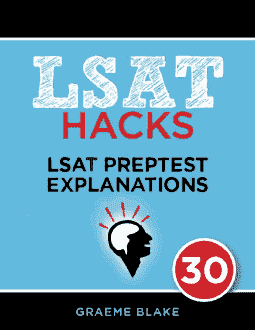QUESTION TEXT: In a poll of eligible voters conducted on the eve of a mayoral…
QUESTION TYPE: Paradox – Exception
FACTS: A poll indicated that more voters surveyed supported Panitch than any other candidate. Yet Yeung won the election by a large margin.
ANALYSIS: There are many reasons polls can be inaccurate. We need four for the wrong answers.
Before answering this sort of exception question, try to think of a few reasons that could work. It will help you eliminate the choices that do offer explanations.
___________
- CORRECT. This makes things more confusing. Yeung won even though he had fewer supporters who could vote.
- This could mean that Mulhern’s voters all decided to support Yeung.
- This would show that the survey could have been biased towards Panitch.
- This shows that Yeung’s supporters were more motivated and thus more likely to actually go vote.
- This shows that the survey sample was not representative of all voters.


Hi Graeme,
Thanks for wonderful explanations!
I wanted to check, LSAT keeps throwing questions at us to confuse us with %age, size etc without giving us exact idea of numbers involved.
but if they havent mentioned directly that Y’s and M’s supporters were the same size and eligible voters for Y were less, then why should we assume it?
Shruti
It’s not that we can assume the percentages were equal. It’s that before knowing A, the whole range of possibilities existed.
Once we know A, it eliminates the possibility that Yeung won by having more supporters who could vote. So it makes the situation more confusing, whereas the criteria for the wrong answers is that they all do help explain.
Note: This is an old comment but I wanted to clarify the point.